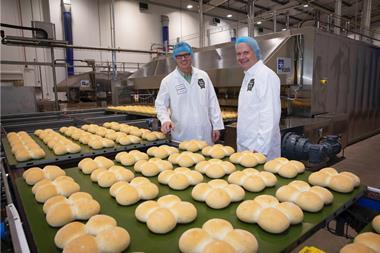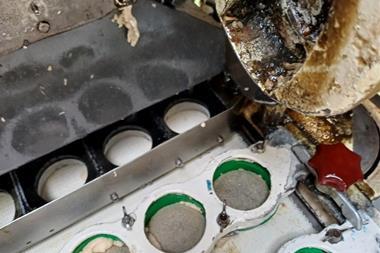Hovis is to cut its UK wheat usage by a third, as the poor 2012 harvest forces it to source from the EU.
Hovis, a Premier Foods brand, has long promoted the fact it uses 100% British wheat in its products. However, the reduced UK wheat harvest, due to the wet weather seen last summer, means it cannot rely solely on UK wheat.
The brand will begin sourcing wheat from the EU from this weekend, and will remove the 100% British wheat claim from its packaging, according to the Financial Times.
It has been reported that the amount of British wheat used by Hovis will fall from one million tonnes to 660,000 tonnes.
Premier said it remains committed to using British wheat, and will source as much wheat from British farmers as possible, in 2013.
"With the 2012 UK wheat harvest being the worst for more than 35 years, the company is finding it increasingly difficult to maintain the high quality bread standards that it requires," said Premier.
"Therefore, it has been put in a challenging position and has had no option other than to use a percentage of imported wheat from the EU."
Premier will be introducing this across the Hovis range by the end of January with the exception of the Farmers Loaf range where it will continue to use only flour milled from 100% British wheat.
Andrew Watts, arable crops committee chairman, National Farmers’ Union (NFU), said: "It has been widely reported that 2012 harvest was, for many of our members, the worst in living memory as excessive rainfall severely affected both wheat quantity and quality.
This directly impacted availability of high quality wheat from UK farmers and we understand the need for Hovis to provide their customers with consistently high quality bread and therefore source wheat from overseas supplement the UK shortage."
He said the NFU endorsed Hovis’ commitment, quality dependent, to increase UK inclusion from the 2013 harvest.
In September, Premier Foods’ milling arm Rank Hovis said the 2012 UK wheat harvest had certainly been challenging in terms of timing and grain quality.
“Wheat availability and significantly reduced white flour extraction levels have been the key issues resulting from the combination of delayed harvesting and subsequent low grain density (as measured by hectolitre weight),” it said.
Gary Sharkey, head of wheat procurement at Rank Hovis, had confirmed that yields were down. “Rather than the 16 million tonnes (m/t) we were expecting, it looks to be more like 14m/t; and there are issues with quality,” he said.
































No comments yet